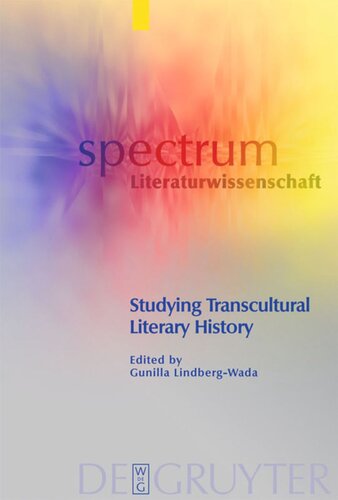

Most ebook files are in PDF format, so you can easily read them using various software such as Foxit Reader or directly on the Google Chrome browser.
Some ebook files are released by publishers in other formats such as .awz, .mobi, .epub, .fb2, etc. You may need to install specific software to read these formats on mobile/PC, such as Calibre.
Please read the tutorial at this link: https://ebookbell.com/faq
We offer FREE conversion to the popular formats you request; however, this may take some time. Therefore, right after payment, please email us, and we will try to provide the service as quickly as possible.
For some exceptional file formats or broken links (if any), please refrain from opening any disputes. Instead, email us first, and we will try to assist within a maximum of 6 hours.
EbookBell Team

4.3
78 reviewsIn our globalised world, literature is less and less confined to national spaces. Europe-centred frameworks for literary studies have become insufficient; academics are increasingly called upon to address matters of cultural difference. In this unique volume, leading scholars discuss the critical and methodical challenges that these developments pose to the writing of literary history. What is the object of literary history? What is the meaning of the term “world literature”? How do we compare different cultural systems of genres? How do we account theoretically for literary transculturation? What are the implications of postcolonial studies for the discipline of comparative literature? Ranging in focus from the Persian epic of Majnun Layla and Zulu praise poetry to South Korean novels and Brazilian antropofagismo, the essays offer a concise overview of these and related questions. Their aim is not to reach a consensus on these matters. They show instead what is at stake in the emergent field of global comparatism.